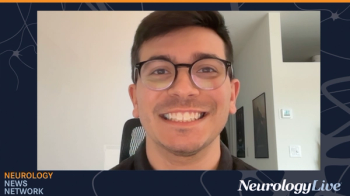
Neurology News Network. for the week ending November 9, 2024. [WATCH TIME: 4 minutes]

Neurology News Network. for the week ending November 9, 2024. [WATCH TIME: 4 minutes]

The doctor of nursing practice specialized in movement disorders discussed specific data the StrivePD app captures and how it can enhance quality of life for patients with Parkinson disease. [WATCH TIME: 3 minutes]
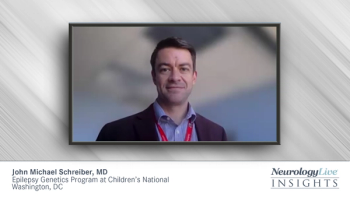
John Michael Schreiber, MD, expands on the role of genetic testing in identifying and diagnosing epilepsy, discussing when it is clinically indicated and who should receive it, while also addressing key considerations for selecting tests for pediatric patients based on individual presentations and clinical factors, and outlining how to choose the best testing options while recognizing potential barriers and expectations for health care providers, caregivers, and patients before and after testing.

The epilepsy specialist and Cleveland Clinic’s Chief Research and Information Officer provided clinical background on a promising study employing a machine learning algorithm to predict post-operative seizure outcomes using a peri-ictal scalp EEG. [WATCH TIME: 6 minutes]
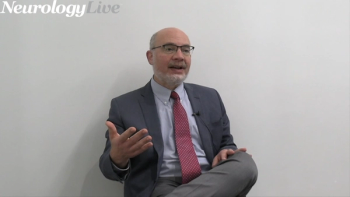
The senior scientist at Sunnybrook Research Institute in Toronto, Ontario, provided clinical insight on the advantages of a flipped classroom, and why neurology educators should consider this approach. [WATCH TIME: 2 minutes]

The doctor of nursing practice specialized in movement disorders provided clinical insight on how the StrivePD application empowers patients with Parkinson disease to track symptoms, medication, and daily activities using an iPhone and Apple Watch. [WATCH TIME: 3 minutes]
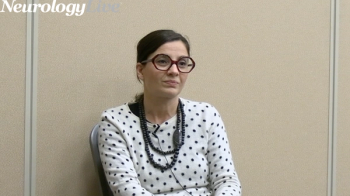
The consultant neurologist and senior lecturer at St. Georges Hospital in London, explores the origins of common neuropsychiatric symptoms experienced by patients with Parkinson disease and how they may be exasperated. [WATCH TIME: 4 minutes]
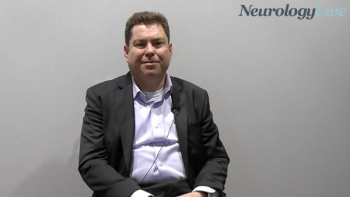
The professor of neurology and radiology at University of California, San Francisco talked about how the new appropriate use recommendations of donanemab aims to safely integrate this anti-amyloid antibody into the clinical practice. [WATCH TIME: 7 minutes]
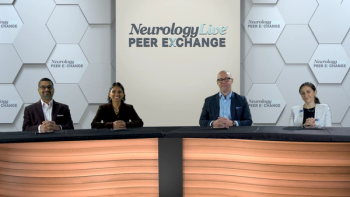
Panelists discuss how a multidisciplinary approach involving various specialists is crucial in managing generalized myasthenia gravis (gMG), offering final insights and recommendations for health care professionals treating gMG patients.

Panelists discuss how recent data presented at the 2024 American Association of Neuromuscular and Electrodiagnostic Medicine (AANEM) conference may impact clinical practice for myasthenia gravis, highlighting emerging treatments they find particularly promising for future management of the condition.
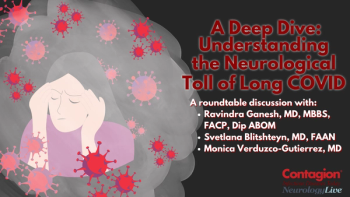
Despite advances in understanding and treating Long COVID, many questions about its mechanisms, susceptibility, and varied recovery patterns remain unresolved, underscoring the need for continued research.

Panelists discuss how emerging agents for generalized myasthenia gravis (gMG) show promise in addressing current treatment gaps, highlighting specific therapies they find particularly exciting for future management of the condition.
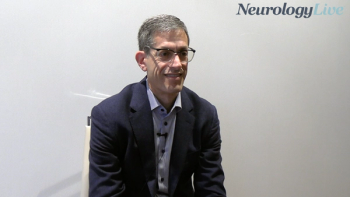
The CEO at C2N Diagnostics talked about the clinical utility of the company’s PrecivityAD2 test, which uses the p-tau 217 biomarker and amyloid-β measurements, to increase diagnostic confidence and influence treatment decisions in Alzheimer disease. [WATCH TIME: 7 minutes]
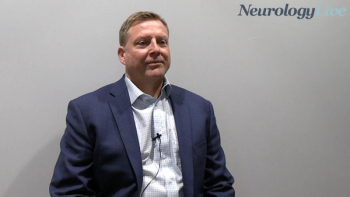
The chief operating officer at Quanterix Corporation talked about pioneering ultra-sensitive blood biomarkers for Alzheimer clinical diagnosis, aiming to enhance detection of brain-derived tau and amyloid status with innovative assays. [WATCH TIME: 4 minutes]
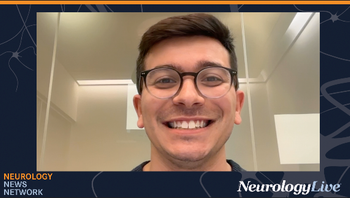
Neurology News Network. for the week ending November 9, 2024. [WATCH TIME: 4 minutes]
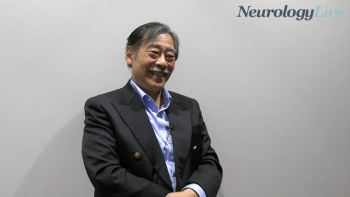
The professor of neuropathology at the University of Tokyo School of Medicine talked about the latest data on lecanemab use in clinical practice for Alzheimer disease in Japan presented at CTAD 2024. [WATCH TIME: 4 minutes]

Panelists discuss how certain aspects of myasthenia gravis management remain challenging, identifying ongoing unmet needs in diagnosis, treatment, and patient care.

Panelists discuss how generalized myasthenia gravis (gMG) presents unique diagnostic challenges in pediatric populations, review current standard-of-care management strategies for children and adolescents, and highlight promising investigational treatments for pediatric gMG.

Panelists discuss how they select patients for FcRn and complement inhibitor therapies, integrate these treatments into long-term management plans, monitor patients on these therapies, and approach treatment for those with inadequate disease control on traditional or targeted therapies for generalized myasthenia gravis.
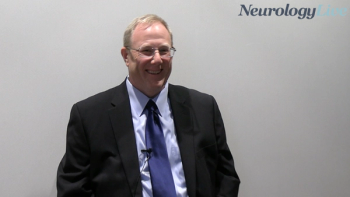
The head of global clinical development for immunology/bone at UCB talked about findings presented at CTAD 2024 from the phase 2 trial assessing bepranemab in Alzheimer disease. [WATCH TIME: 3 minutes]
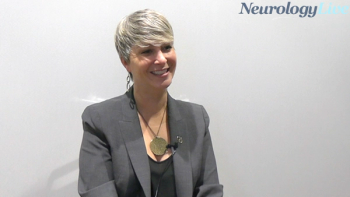
The vice president of scientific engagement at the Alzheimer's Association talked about the emergence of blood biomarker tests as valuable diagnostic tools for Alzheimer disease in the clinical setting. [WATCH TIME: 5 minutes]

John Michael Schreiber, MD, provides an overview of genetic testing, detailing the different types, including whole genome sequencing (WGS), whole exome sequencing (WES), multigene panels, comparative genomic hybridization (CGH), and chromosome microarray (CMA).

Panelists discuss how they approach and potentially adapt the dosing and administration regimens of approved and investigational FcRn inhibitors in their myasthenia gravis patients, considering the prescribed guidelines and individual patient needs.

Panelists discuss how recent phase 3 trial results for nipocalimab and batoclimab, both neonatal Fc receptor (FcRn) inhibitors, demonstrate efficacy and safety in different generalized myasthenia gravis patient populations, comparing these findings with earlier phase 2 data and evaluating their potential impact on treatment approaches.

Panelists discuss how they approach combination therapy in generalized myasthenia gravis (gMG), including patient selection and timing, while also examining how the availability of newer targeted treatments has influenced their approach to managing newly diagnosed patients.

Panelists discuss how specific disease characteristics and individual patient factors influence their decision-making process when selecting treatments for generalized myasthenia gravis.
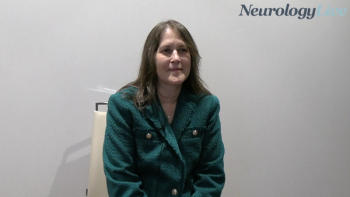
The professor of psychiatry and pharmacology at the University of Toronto talked about results from a post hoc analysis presented at CTAD 2024 that explored synthetic cannabinoid nabilone for agitation in Alzheimer disease. [WATCH TIME: 4 minutes]
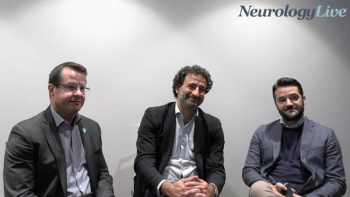
A trio of experts from Sinaptica Therapeutics talked about recent findings presented at CTAD 2024 from a study assessing personalized transcranial magnetic stimulation in patients with Alzheimer disease. [WATCH TIME: 5 minutes]

The director of the Muscular Dystrophy Clinic at UCSF Benioff Children’s Hospital provided insight on promising data from the phase 2/3 VIBRANCE-MG study assessing investigational nipocalimab in adolesents with myasthenia gravis. [WATCH TIME: 3 minutes]

Clinicians discussed the complexities of diagnosing Long COVID, emphasizing the need for improved biomarkers and diagnostic technologies to better serve affected patients.